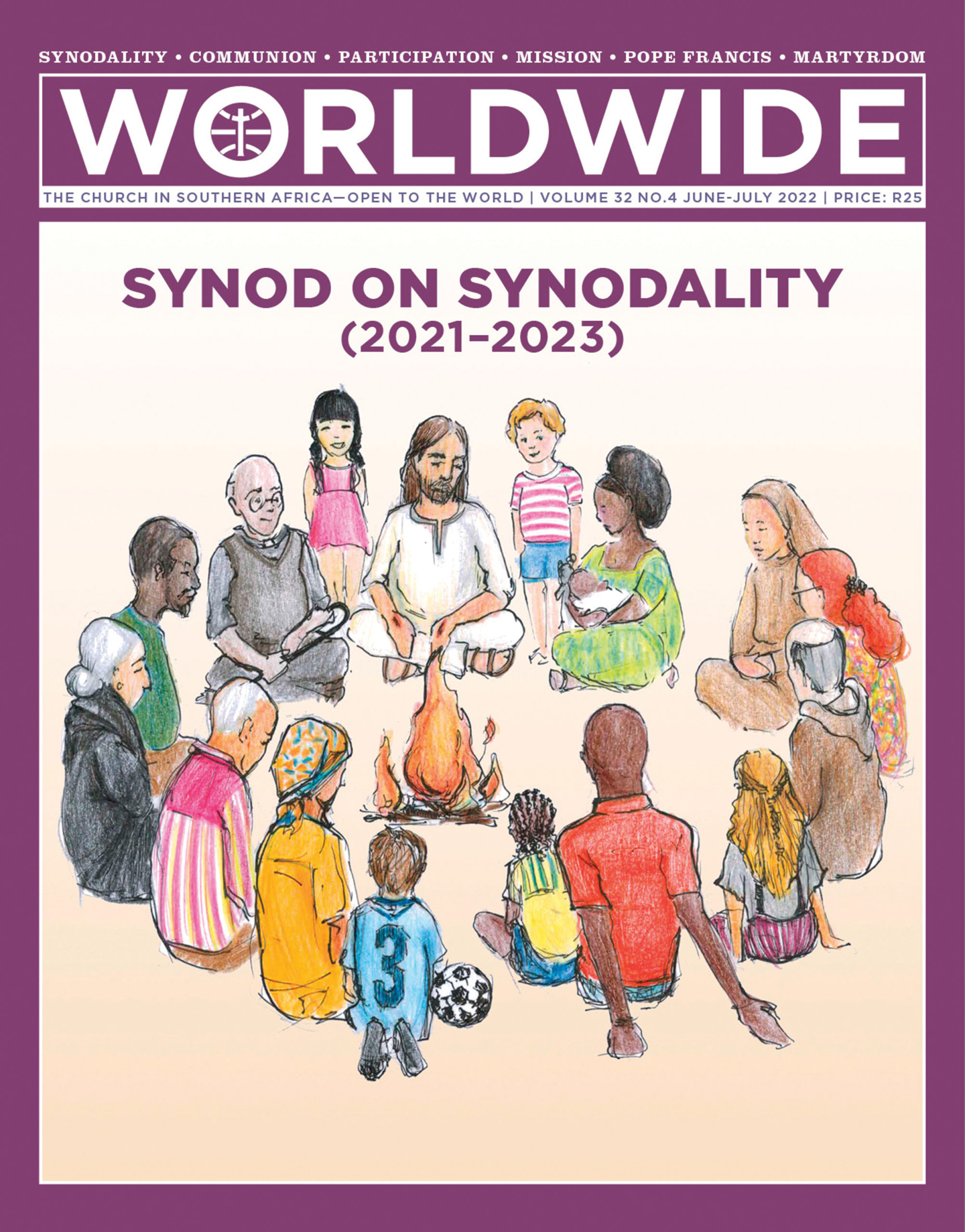
SYNOD ON SYNODALITY (2021–2023)
The cover illustration represents the exercise in which the Church is invited to engage in this process of synodality. Gathered by the Lord and guided by the Holy Spirit, through a journey of prayer, the people of God from all continents, representing diverse ages and kinds of lives, come together to listen to each other, including those marginalized, participating and reflecting on how to be transformed into an inclusive community sent to the mission in the world.
SPECIAL REPORT • RENEWAL
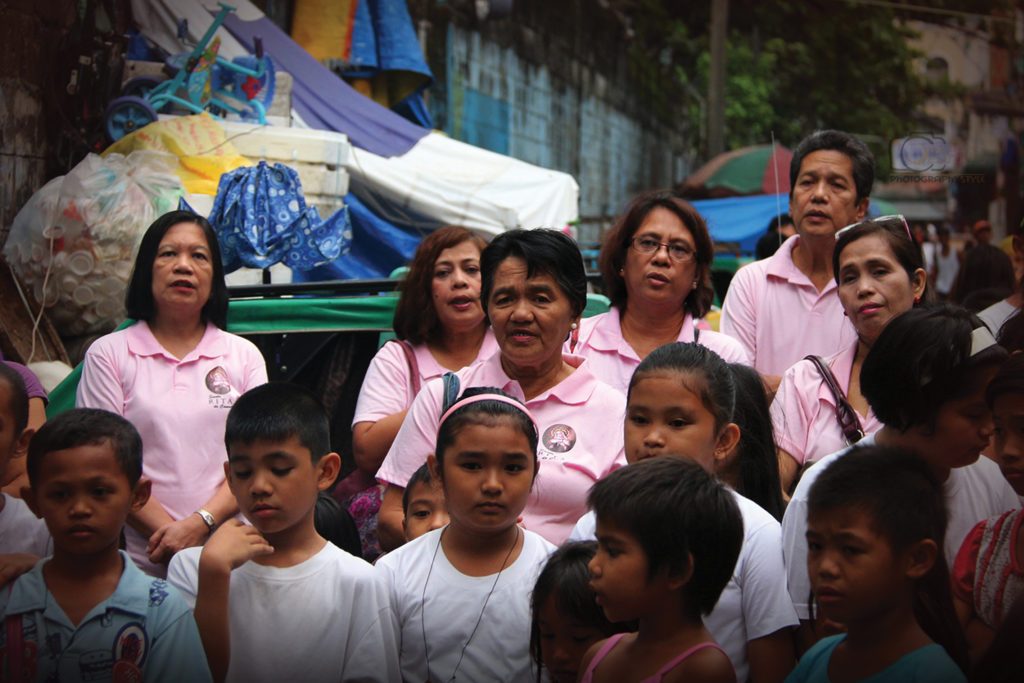
Walking together, listening to the Spirit
The author of this article, member of the Commission on Methodology of the Synod of Bishops, inaugurated its sessions last October at the Vatican with a meditation on the call to all baptised members of the Church to exercise synodality. She believes that the Synod on Synodality is an opportunity for the Church to renew herself through the action of the Holy Spirit and to become a home open to all with the Gospel at her centre
BY Cristina Inogés-Sanz | lay theologian, Valladolid, Spain
WE ARE on Synod, not in a Synod. The difference is fundamental because, for the first time in the history of the Church, it is the whole people of God who are called to make its voice heard.
Preliminary considerations
Three realities must be considered
primarily:
- It is a process prompted and guided by the Spirit, convened by Pope Francis in which, whatever we achieve will not be by our own strength.
- We have come to this Synod because the Church needs to listen to herself. At Vatican II, the question was: “Church, what do you say about yourself?” Now the question is: “Church, what are you willing to listen about yourself?”
- The Church has done, does, and will continue to do a lot of good, but we must recognise that she has also done things wrongly, made mistakes and committed crimes. This should not make us lose hope; on the contrary, we have before us a time of personal and communal conversion; a time to reflect, to listen to ourselves and to those whom we believed had nothing to say to us, a time to correct each other, and between us all, to learn to be a Church in another way.

Self-absorption
One of the gifts that Pope Francis has brought is to teach us to speak clearly and name things which happen to us in the Church, particularly mentioning the problem of self-referenciality or navel-gazing.
For centuries self-referenciality has been an evil in our Church; living it as something normal, we have turned the Church into a goal, instead of what it should always be: the way. This has caused the Church/us to look inward and, if when looking outward, to do it with suspicion, and feeling attacked at the slightest opportunity. Thus, the Church has ended up being for herself the most of the most.
We are a Church immersed in the astonishment of not knowing how she has arrived at the situation we live in because everything done and still does “has always been done this way”, without realising that she is no longer in that world, where society and situation made her practically indispensable and unquestionable.
We are a Church that still believes today that she has much to say, much to teach and nothing to learn, whereas, in reality, we all need to learn from each other. We are beginning the journey towards a synodal Church which does not fail to show us the way of shared leadership.
Back to the Gospel
Our Church has distanced herself from Jesus´ message more than what is explicable, and also, by closing the door to the future, has distanced herself from today’s world. The last three generations, in some parts of the world, have migrated to other mental territory, even if they Went to religious schools. These are obvious facts.
Learning to be Church in a different way is only possible if there is a free, full participation by all
Walking together may seem very simple as we walk down a street together with people whom we do not know, but this Synod is called to make us learn to walk together in a deeper sense than what we can think of. It is not just about physical exercise, going from one place to another, but much further, something that, in the Church, we do not know how to do.
Listening to the margins
What is it that we don’t know how to do? Surprisingly enough, we don’t know how to listen to each other. We have never done that in the Church. Everything came to us from above and, at best, all we could do was to say “amen”. That was not listening. That was just nodding.
For the first time, a Pope, Francis, has changed the whole structure of a Synod to allow our participation; that means that the voice will not come from above, but from below. The voice of all, not just of those we consider to be God’s people.
This Synod has been raised up by the Spirit, and it is in listening to the Spirit that we must act. That Spirit—who in the history of the Church and the Bible has often spoken through those discarded and cast aside by others—can speak now through those who are on the margins, and even beyond, of the Church. Do we know who are on those margins and beyond them? Are we able to name them?
Welcoming home for all
Tomáš Halik, Czech theologian, says very clearly that the Church is for everyone, that she can and must offer, whoever approaches her, accompaniment without proselytising or paternalism, without positioning herself as the only one capable of teaching, but willing to let herself to be taught and to learn from others. Learning to be Church in a different way, as a synodal Church, is only possible if there is a free, full participation by all.
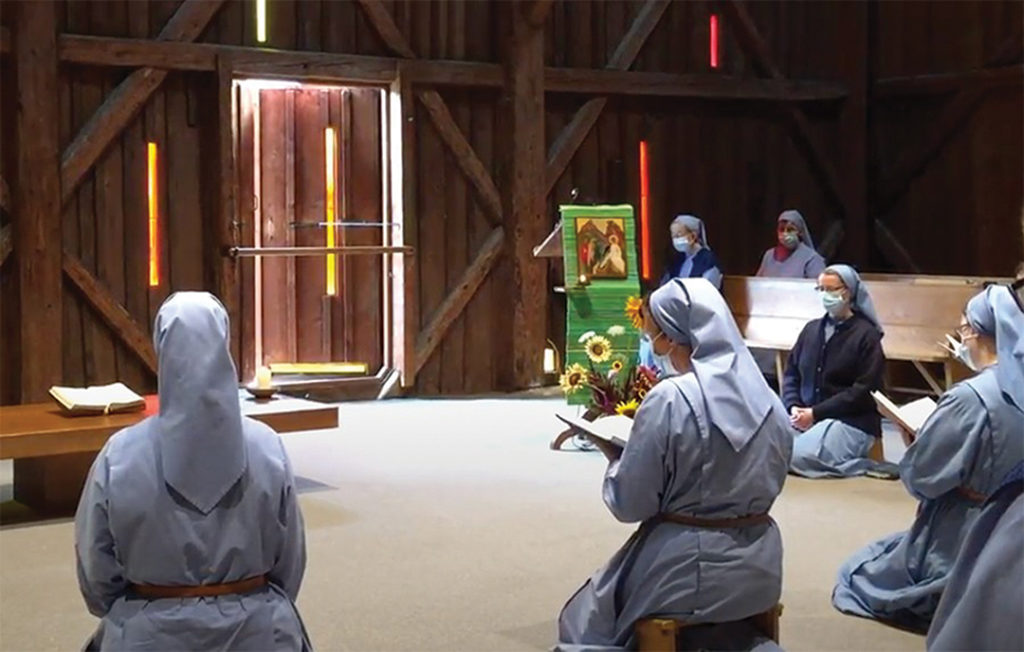
Some people want change, they are very hurt that this doesn’t happen and they try to make it happen
We cannot fall into rigorism, so contrary to the way Jesus of Nazareth acted and lived, and think that we are his faithful and loving followers, leaving out those in the margins, which, defined by us are, the divorced and remarried; the LGTBIQ+ communities; women (do not forget that we are on the margins of the Church); secularised priests; those who live their Christian commitment outside the official channels; intellectuals who find—often not wrongly—the way the message is presented, superficial and childish; those who break in some way with the rigour of rituals, in which the perfection in their execution becomes more important than the love put into them. This does not shake the structures but rigorism does, without the slightest doubt.
Change
As the multifaceted Maya Angelou said, “what you are supposed to do when you don’t like something is to change it”. Some people want change, they are very hurt that this doesn’t happen and they try to make it happen. We can be part of the problem or part of the solution. What shall we do? It is good to recognise that we are not at our best moment, but not to believe that we don’t have any solution—we do. That is why we are in this synodal process which, let us remember, is a spiritual process.
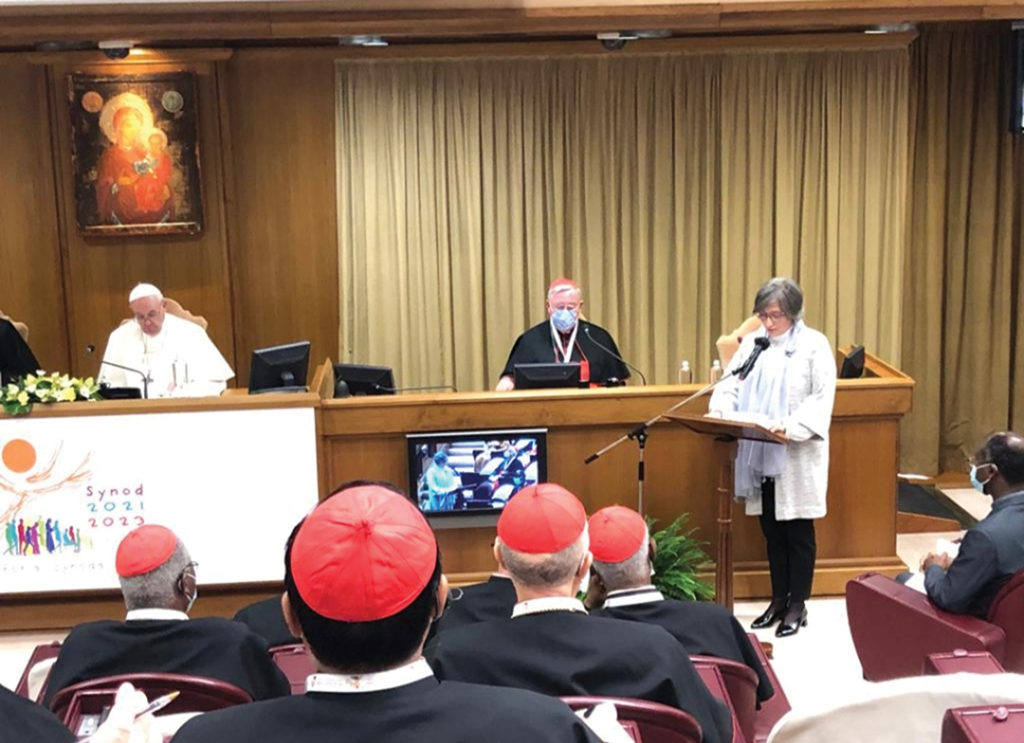
Walking presupposes that, at every step, the world changes in some way and also, something changes in us. I like what Susanna Tamaro writes: “When you want to judge someone, first walk three moons in their shoes”. Walk, walk and walk again, side by side, exchanging shoes, in someone else’s shoes; walking alongside fragility, in nakedness, without robes or raised index fingers. We must walk to build a world whose basis is no longer prejudice and judgement, but humility and understanding.
Humanizing journey
A human being’s true home is not a house, but a road. Life is a journey to be made on foot. Walking with a barefoot soul and open eyes and ears not only broadens the mind: it shapes the mentality called to be changed through this Synod; after a personal and communal process of conversion. We aim at changing both the way we relate to each other in the Church and some of her no longer feasible structures too. Walking is a virtue, it humanises one. If one walks the right path, it is not one who follows it, but the path that walks in one.
The church to which Pope Francis invites us is undoubtedly the Church of Jesus of Nazareth
Reaching out helps to think of others and ourselves. Walking the road is learning about life. Walking we learn a lot. Do we look at people’s eyes because they are full of words? Each passer-by is a world of his/her own and guessing what he or she carries inside is humanising and fraternal. So many stories, hopes and dreams, so much kindness, love, suffering, indifference and loneliness in the midst of people, so much hearing without listening, so many broken dreams! There is all these. Walking together makes us visible. If we look at each other and listen to each other, we exist!
Walking together, talking to each other with our hearts and from our hearts, listening to each other and to those we have always thought had nothing to say to us. As Church, we cannot only take care of ourselves inside. Mission calls us to go out. Stove-piped communities are a danger. We cannot feed only on ourselves.
Dynamism
The Church is bottom up, a living experience, not to be explained; words are insufficient for certain explanations. The Church to which Pope Francis invites us is undoubtedly the Church of Jesus of Nazareth. What a boldness to put the Gospel at the centre of the Church!
In the 19th century, the British Cardinal Newman wrote: “It may be otherwise in a higher world, but here below, to live is to change, and to be perfect is to have changed many times”. Change is the only immutable thing, the strongest law of nature. It is not only necessary in life: it is life itself. The clock will not turn to the left. We are made to move forward.
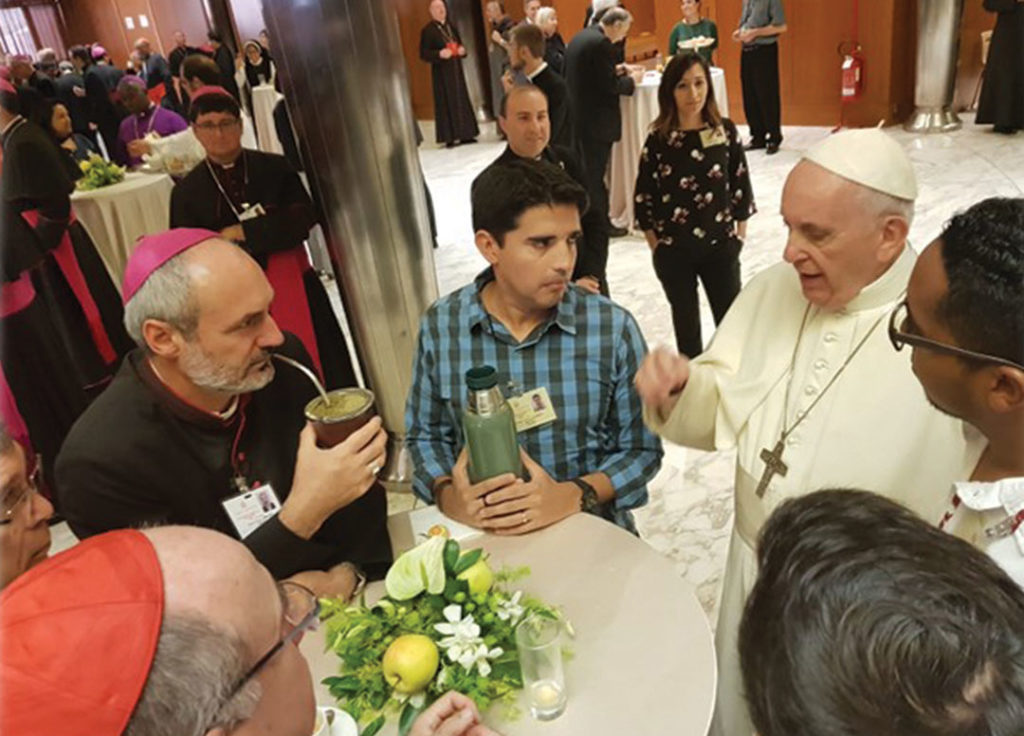
When we open the first page of Genesis we are surprised to find such a pedagogical account which tells us about creation in a period of seven days, narrated according to the Jewish culture in which the day begins at sunset.
Community in evolution
It is also striking that a text written so long ago expresses so clearly the steps of evolution indicated in an order in which the light, the sky, the water, the earth, the plants, the animals, the stars that separate day from night… appear.
In this magnificent story is contained and expressed the logic of the evolution desired by God in creation. If the cosmos, the world and human beings have evolved and are evolving, why shouldn’t the Church evolve?
Ultimately, it is a question of continuing to change, not of creating another Church, but of learning together, to be Church in another way. That is why it is more than necessary to know how to listen to each other. The fact of gradually transforming ourselves into a synodal structure will not make us a Church of perfect members, but of the baptised, where the ordained ministers are called to feel, to be and to act like any other member of the Church; to live their vocation as the rest of the baptised are called to live theirs.
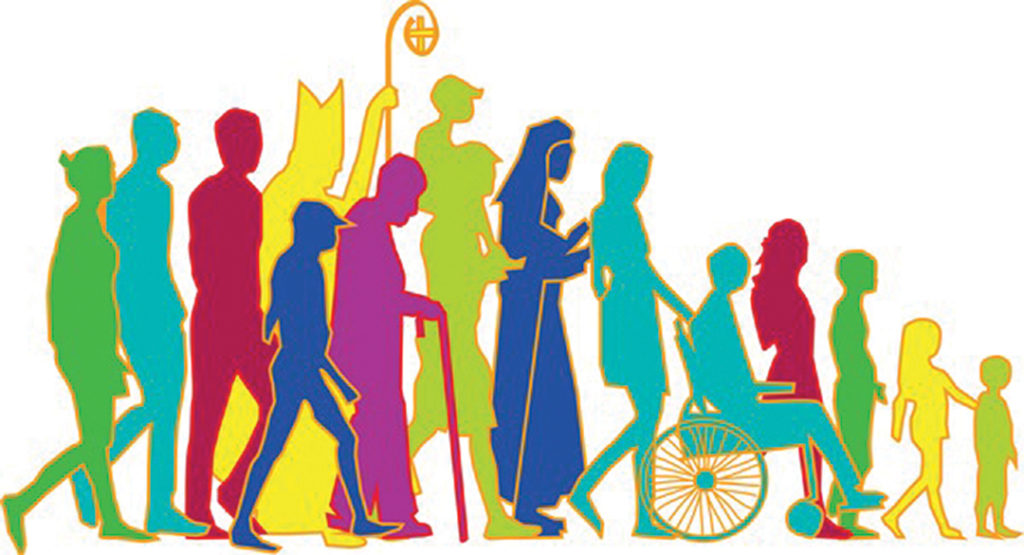
Credit: synod.va.
In conclusion, I would like to pose some questions that may help us to reflect, since this synodal process, a spiritual process, concerns us both in the ecclesial sphere and the world at large: can we improve the world without improving the Church? Isn’t building up a better Catholic Church part of pursuing the common good? Why exclude the Church from the dream of a better world? Why work only for short-term results? Is it because it is more rewarding and gives more security?
May we be able to talk and listen to each other, to others and keep ever changing!
| Dates To Remember |
|
June 1 – Global Day of Parents 4 – International Day of Innocent Children Victims of Aggression 5 – Pentecost Sunday 5 – World Environment Day 8 – World Oceans Day 12 – World Day Against Child Labour 13 – International Albinism Awareness Day 15 – World Elder Abuse Awareness Day 16 – National Youth Day in South Africa 17 – World Day to Combat Desertification and Drought 19 – International Day for the Elimination of Sexual Violence in Conflict 20 – World Refugee Day 23 – International Widows’ Day 26 – International Day against Drug Abuse and Illicit Trafficking 27 – Micro, Small and Medium-sized Enterprises Day July 3 – International Day of Cooperatives 11 – World Population Day 15 – World Youth Skills Day 18 – Nelson Mandela International Day 24 – World Day of Prayer for Grandparents and the Elderly 30 – International Day of Friendship 30 – World Day against Trafficking in Persons |

Wohh just what I was searching for, appreciate it for putting up.
Thanks dear viewer!
I am glad we are of your help. God bless you
Rafael